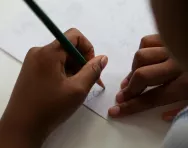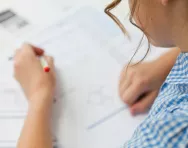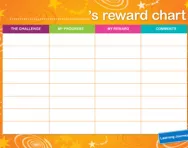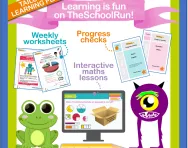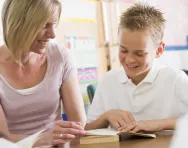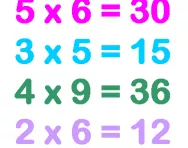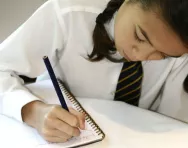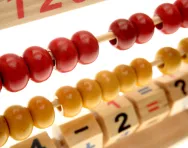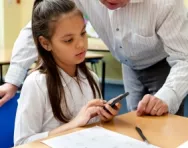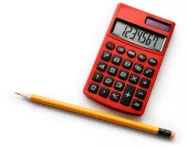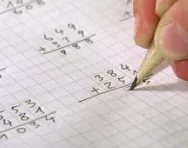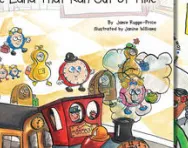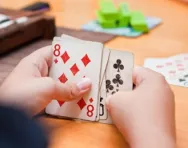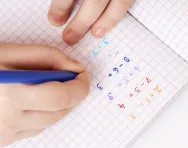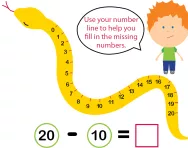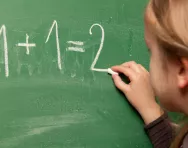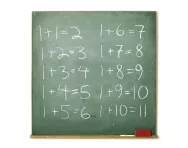Year 4 Maths articles
What are inverse operations?
Inverse operations are opposite operations – one reverses the effect of the other. In primary maths we talk about the inverse to explain how addition and subtraction are linked and how multiplication and division are linked. Teacher Alice Hart offers examples of how and when your child will be asked to use the inverse operation in school, and practical ways to help them understand the concept.
Your child's new school year preparation plan
Each year group brings fresh challenges in literacy and numeracy. Want to give your child a head start? Primary teacher Phoebe Doyle offers some easy-to-action advice on tackling an objective from the year group your child is about to enter during the summer break.
National Reading and Numeracy Tests explained for parents
All children in Wales from Y2 to Y9 take tests in reading and numeracy at the end of each school year. Find out what these tests involve, and how you can help your child prepare for them.
6 steps to a money-savvy child
We all want our kids to have the very best future, and ensuring they’ve got money sense is crucial to help make it happen. Mum-of-two and financial whizz Emily Richards shares a few down-to-earth strategies to equip your child with money management skills for life.
The Learning Journey reward chart and certificates
Support your child's Learning Journey with these fantastic motivational resources – a colourful reward chart where you can set your own challenges and choose rewards together, and printable certificates to celebrate success.
How the Learning Journey works
Find out how our fantastic primary school learning programme – The Learning Journey – could benefit you and your child as well as full details of how to use the reward charts and certificates!
What is mental maths?
The ability to work sums in your head is an important skill that primary students must develop throughout the key stages. We explain what mental maths means in National Curriculum terms, and how you can help your child become a quick calculations whizz!
Teachers’ top 10 classroom discipline tricks
Does every homework session end in tears and tantrums? Or are you losing sleep over getting your child to learn their spellings? Lucy Dimbylow asked the people who manage 30 children at a time (gulp!) – teachers and teaching assistants – to share their tried and tested tricks.
Times tables: 10 things every parent needs to know
If you're a KS2 parent, chances are you'll spend more time than you ever thought possible looking for ways to help your child learn their times tables. Here are the ten things you should know before you get started.
11 things parents need to know about the National Curriculum
It’s the basis for what your child learns every day, but what exactly is the National Curriculum and what does it teach? Education writer and primary teacher Phoebe Doyle offers some clarity.
What your child learns in Year 4 maths, English and science
Help your child prepare for the concepts and topics covered in Year 4 by knowing ahead of time what they’ll be learning in class.
Teachers’ tricks for learning times tables
Do you dread times table practice as much as your child does? Primary school teacher Alice Hart uses these effective learning strategies in her classroom – give them a try to liven up today's homework time.
A maths homework help guide for KS1 and KS2
Maths is not always a popular subject with children. But with these handy tips and downloadable worksheets, it can become a lot more fun.
Top times tables games
Help your children enjoy learning their times tables with a few easy games. Education writer Phoebe Doyle suggests five ideas for you to try.
What your child learns in KS2 maths curriculum
Think maths involves just adding, subtracting and times tables? Think again. Here’s a rundown of all the things your child will be learning in Years 3 to 6.
Year 4 maths: what your child learns
Want to know what subjects will be the focus in maths lessons in Year 4? Find a detailed breakdown here.
How to help with maths homework: a non-expert's guide
Maths is one subject that fills many parents with dread - but is it really so hard? We talk to author and deputy head teacher Matt Revill to find out how parents can help their children's maths learning.
Learning numeracy at home
All around us are a wealth of mathematical problems just waiting to be solved. Here’s how to help your child extend their numeracy skills at home.
Teaching time the 21st century way
Are you struggling to teach your child to tell the time? Elena Dalrymple reviews a new story-based learning method.
Everyday ways to make maths fun
Want to instil a love and appreciation of maths in your primary school child? You can with our practical suggestions to help make numbers fun.
What is partitioning?
Not sure what your child means when they talk about partitioning numbers in maths problems? We explain the method, and how your child will use it.
What is a number line?
Spotted something about a number line in your child’s homework instructions, and not sure what it means? We review the basics of this amazing, adaptable educational tool and explain how it's used in KS1 and KS2 maths.
Easy ways to engage your child with maths
Do the words “I need help with my maths homework” strike fear into your heart? Our tried-and-tested tips from maths experts will help change your child’s attitude to numbers – and yours
Maths for parents
You want to help your children with their maths learning, but what if it’s just as much of a struggle for you? Read on for top tips to help.
Learning English and maths outdoors
The great outdoors is a place where learning can take diverse shapes and forms. We take a look at how you can use it to strengthen your child’s literacy and numeracy skills.
9 ways to teach your children the value of money
Every child can benefit from learning some valuable lessons about finance. We suggest simple strategies to help your primary-school child understand money, whatever their age.
Three tips to help your child with maths
Giving your child too much help with their maths work can be detrimental to their learning, but it’s still good to show your support. Read on for top tips and techniques to get your child learning maths independently.

